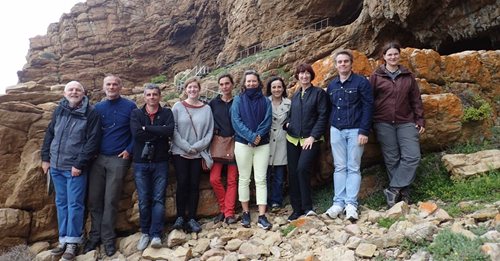The MAGIC research team comprises members from Exeter University, Arizona State University, IRSTEA, CNRS, CIRAD and the SRU. These institutes provide a diversity of research skills and perspectives and enable an elaborate cross-scale comparison of the three coastal areas over a three year period. The team meets at regular intervals to refine research methodologies, share findings, formulate common grounds and prepare scientific outputs. During these meetings, field trips and engagement with local stakeholders allow for deeper insights into site-specific processes of adaptations and sources of vulnerability.

The first MAGIC team meeting hosted by the SRU took place from the 3rd-9th of November 2015, during which the MAGIC team spent 3 days at the SAPECS conference in Stellenbosch. This conference was an opportunity for the team to disseminate current insights from their comparative study to an international research community. It also provided insights from other research around the issues of global change and sustainability, which stimulated dialogue and the formulation of new ideas within the MAGIC team.
Thereafter, the MAGIC team resided in Wilderness which was used as the base from which to explore the Garden Route. One field trip targeted Pinnacle Point Caves in Mossel Bay, the place where the first evidence of human behaviour originated. The team learned about the vulnerability of this cultural heritage which is threatened by residential development and the lack of legislative protection. Further impacts of large-scale residential development could be observed during several field trips to beaches along the Garden Route.
The MAGIC meeting concluded in Wilderness where specific research themes, separate working groups and scientific publications were identified and contextualized.
The MAGIC team members felt highly satisfied with the level of productivity, the wealth of inspiration and the commonality gained during the MAGIC meeting in South Africa.